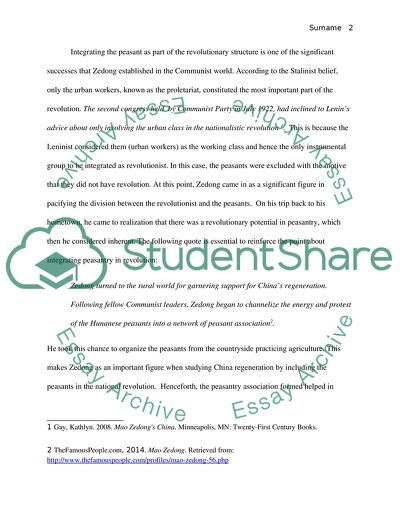Cite this document
(The Achievements and Failures of Mao Zedong Report Example | Topics and Well Written Essays - 1500 words, n.d.)
The Achievements and Failures of Mao Zedong Report Example | Topics and Well Written Essays - 1500 words. https://studentshare.org/history/1819145-the-achievements-and-failures-of-maozedong
The Achievements and Failures of Mao Zedong Report Example | Topics and Well Written Essays - 1500 words. https://studentshare.org/history/1819145-the-achievements-and-failures-of-maozedong
(The Achievements and Failures of Mao Zedong Report Example | Topics and Well Written Essays - 1500 Words)
The Achievements and Failures of Mao Zedong Report Example | Topics and Well Written Essays - 1500 Words. https://studentshare.org/history/1819145-the-achievements-and-failures-of-maozedong.
The Achievements and Failures of Mao Zedong Report Example | Topics and Well Written Essays - 1500 Words. https://studentshare.org/history/1819145-the-achievements-and-failures-of-maozedong.
“The Achievements and Failures of Mao Zedong Report Example | Topics and Well Written Essays - 1500 Words”. https://studentshare.org/history/1819145-the-achievements-and-failures-of-maozedong.


